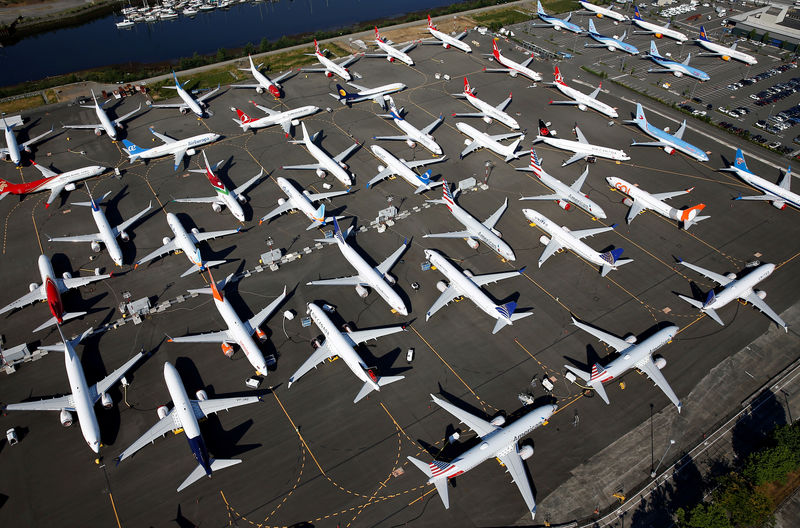By Allison Lampert and David Shepardson
MONTREAL/WASHINGTON (Reuters) - An email sent by a Transport Canada official urging Boeing (N:BA) to remove an anti-stall system involved in two 737 MAX crashes reflects "working-level discussions" and were not reviewed by the Canadian regulator, the agency said on Friday.
The New York Times reported that an engineering manager in aircraft integration and safety assessment at Transport Canada emailed international regulators on Tuesday saying: "The only way I see moving forward at this point" is that Boeing's MCAS system "has to go."
The email was sent to the Federal Aviation Administration (FAA), the European Union Aviation Safety Agency (EASA) and Brazil’s National Civil Aviation Agency, the New York Times said.
A person briefed on the matter confirmed the content of the email, but Reuters had not viewed a copy.
The anti-stall MCAS system was linked to MAX crashes in Indonesia and Ethiopia that together killed 346 people. The MAX has been grounded since March.
The MCAS system was designed to counteract the effect on handling of the new, larger engines on the 737 MAX, which had to be placed farther forward and higher on the wings because the 50-year-old 737 design sits relatively low to the ground.
Boeing is working to win regulatory approvals for proposed fixes to MCAS and associated pilot training so the 737 MAX can fly again.
“The email reflects working-level discussions between highly trained aircraft certification experts of key aviation authorities who have been given wide latitude for assessing all issues and looking at all alternatives for the safe return to service of the aircraft," Transport Canada said in a statement.
"The views are at the working level and have not been subject to systematic review by Transport Canada."
A senior industry source who spoke on condition of anonymity said removing MCAS from the 737 MAX would present only a “minor” risk, but doing so would not be tolerated under the strict rules regulating the aviation industry.
Without MCAS, the plane was unlikely to comply with the regulations due to the handling characteristics the system was designed to address, a regulatory official said.
The FAA said in a statement that its international partners have "engaged in robust discussions at various stages in this process as part of the thorough scrutiny of Boeing’s work. This email is an example of those exchanges."
In a statement, Boeing said on Friday it "continues to work with the FAA and global regulators."
